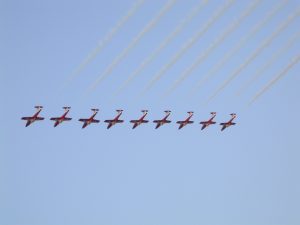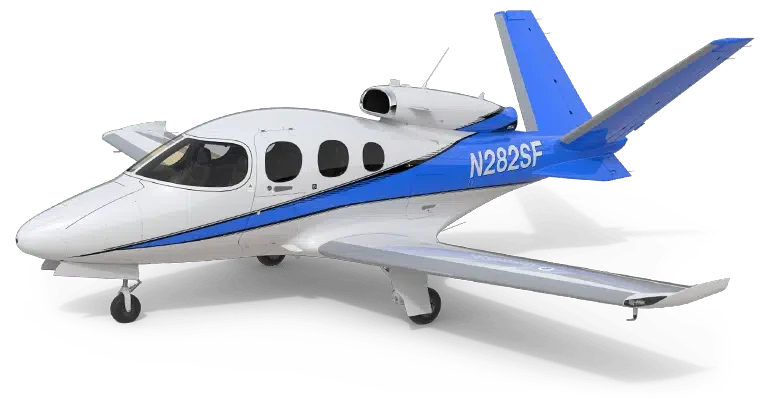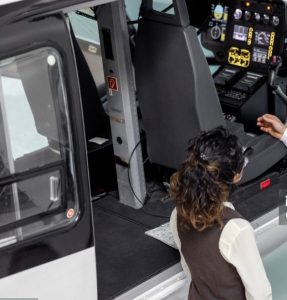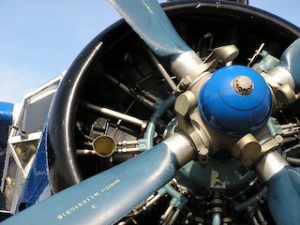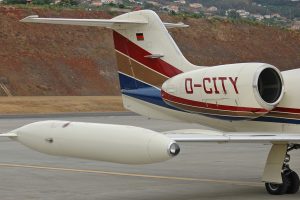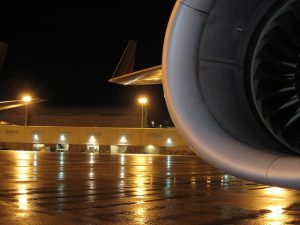Understanding The Models Of Netjets Pricing
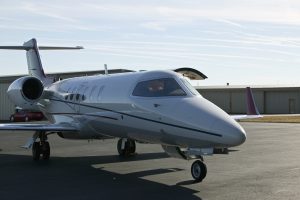 NetJets offers a unique and flexible private jet ownership model that allows individuals and companies to enjoy the luxury and convenience of private aviation without the responsibilities and costs of full aircraft ownership. The company has become one of the leading names in fractional jet ownership, offering an array of jet options to meet diverse needs. However, understanding NetJets pricing can be complex due to various factors that influence the cost. This guide breaks down the factors that contribute to NetJets pricing, helping potential customers make informed decisions.
NetJets offers a unique and flexible private jet ownership model that allows individuals and companies to enjoy the luxury and convenience of private aviation without the responsibilities and costs of full aircraft ownership. The company has become one of the leading names in fractional jet ownership, offering an array of jet options to meet diverse needs. However, understanding NetJets pricing can be complex due to various factors that influence the cost. This guide breaks down the factors that contribute to NetJets pricing, helping potential customers make informed decisions.
NetJets pricing models
NetJets pricing operates on a fractional ownership model, meaning that customers share ownership of a jet with others. The fractional model offers the flexibility of private jet travel while significantly reducing costs compared to full ownership. NetJets provides various programs, each with its own pricing structure, to suit different types of travelers, from individuals to corporate fleets.
- Fractional ownership: With fractional ownership, you buy a share in a specific jet. The size of your share determines how many flight hours you’re entitled to each year. This model offers benefits such as guaranteed availability, consistent pricing, and access to a diverse fleet of jets. The larger the share, the more flight hours you get, and the more expensive the initial cost.
- Lease programs: NetJets also offers lease programs for those who need private jet access without committing to fractional ownership. A lease allows you to reserve a specific amount of flying hours over a set period. This option provides greater flexibility, with lower upfront costs compared to fractional ownership. However, it may require you to commit to specific flight hours, which can affect the pricing structure.
- Jet card programs: NetJets’ jet card programs cater to those who fly frequently but don’t want the long-term commitment of fractional ownership. With a jet card, customers pay for a block of hours, which are guaranteed for use over a set period. This model is more affordable than fractional ownership, making it a great option for individuals or businesses that require occasional private jet travel.
Breaking down NetJets pricing
NetJets pricing is influenced by multiple factors, including the type of program, aircraft model, and flight hours. Here’s a breakdown of what goes into the cost.
1) Initial purchase costs
When entering into fractional ownership, the first cost you will face is the initial purchase price of your share. The price depends on the size of the share, which typically ranges from 1/16th to 1/4th ownership in a jet. A 1/16th share in a popular jet like the Bombardier Challenger 350 could cost between $500,000 to $800,000, depending on the model and configuration.
For larger shares, the cost increases significantly. A 1/4th share could range from $2.5 million to $4 million. This upfront cost allows you to reserve a set number of flight hours annually, generally between 50 and 200 hours, depending on your share.
2) Monthly management fees
In addition to the initial purchase price, fractional jet owners must pay monthly management fees. These fees cover the costs of maintaining the aircraft, crew salaries, and operational expenses. For a 1/16th share, monthly fees can range from $10,000 to $15,000, depending on the jet model. Larger shares, such as a 1/8th or 1/4th share, will incur higher monthly fees, typically between $20,000 to $45,000.
Monthly management fees remain constant throughout the year, regardless of how much you fly. These fees contribute to the predictable and transparent cost structure that NetJets is known for.
3) Hourly flight costs
Hourly flight costs are a significant component of NetJets pricing. These costs depend on the specific aircraft you’re flying on, as well as the total flight time. The hourly rate covers fuel, maintenance, and crew services. Hourly costs generally range from $2,000 to $8,000, depending on the jet type. For instance, a smaller jet like the Phenom 300 may cost around $2,000 per hour, while larger jets such as the Gulfstream G450 can exceed $6,000 per hour.
The longer the flight, the higher the overall costs. NetJets pricing for long-haul flights can be considerably more expensive due to fuel surcharges, additional crew costs, and other operational factors.
4) Aircraft type and model
The type and model of the aircraft you select will directly affect the overall cost. NetJets offers a wide range of jets, from light jets to large cabin jets. Light jets, such as the Cessna Citation XLS or Embraer Phenom 300, tend to be more affordable, with lower hourly costs and maintenance fees.
On the other hand, larger jets, such as the Bombardier Global 6000 or Gulfstream G650, come with a premium price tag. These jets offer greater comfort, larger cabins, and enhanced performance, but they also come with higher upfront costs and hourly rates. The aircraft type chosen will depend on your travel needs, as larger jets are better suited for long-haul flights, while smaller jets are more efficient for shorter trips.
5) Peak and off-peak flight schedules
NetJets charges different rates based on the time of year and flight demand. During peak travel seasons, such as holidays and summer months, the demand for private jets increases, resulting in higher costs. You may be charged additional fees or face limitations on aircraft availability during these peak periods.
Off-peak periods, on the other hand, often come with lower rates and better availability. NetJets offers more flexible pricing for customers willing to fly during quieter times of the year, making it a more affordable option for those with flexible schedules.
6) Additional charges
While the primary costs associated with NetJets are the purchase price, management fees, and hourly flight rates, several additional charges may apply. These include:
-
- Fuel surcharges: Fluctuations in fuel prices can lead to extra costs, especially for longer flights.
- Landing and airport fees: Fees vary based on the airports you use. Larger airports often charge higher fees.
- International travel: Flying internationally may involve additional costs, including customs fees, international routing, and landing charges.
- Crew costs: Additional crew members may be required for longer flights, adding to the total cost.
These extra charges are typically outlined in your contract and can be anticipated for each flight.
Jet card pricing with NetJets
NetJets’ jet card program allows individuals or businesses to purchase a set block of hours in advance. Jet card pricing is more straightforward than fractional ownership, with no large upfront costs or monthly management fees. However, it is still a premium service, designed for those who require private jet access on demand.
- Jet card pricing breakdown: A jet card typically requires a minimum commitment of 25 to 50 hours of flight time. The price for a jet card varies depending on the jet type and the number of hours purchased. For example, a jet card for light jets, such as the Citation Excel, may cost around $200,000 for 25 hours. For larger jets like the Gulfstream G450, jet card pricing can range from $500,000 to $750,000 for a similar block of hours.
- Benefits of a jet card: The main advantage of the jet card program is flexibility. You can use the hours for any aircraft in the NetJets fleet. You also avoid the long-term commitment of fractional ownership, with no monthly fees or annual maintenance costs. Jet card holders only pay for the hours they use, making it a more cost-effective option for those who fly less frequently but still require the luxury and convenience of private jet travel.
NetJets for corporate travel
NetJets is a popular option for corporate travel, as it offers flexibility and reliability for business leaders and their teams. Corporate programs are tailored to meet the needs of companies that require frequent access to private aviation.
- Corporate jet programs: For businesses that require multiple jets or a high number of flight hours, NetJets offers customised corporate programs. These programs allow businesses to purchase fractional shares across different aircraft models, giving them access to a diverse fleet. This flexibility ensures that companies can choose the best aircraft for each flight, whether it’s a light jet for short trips or a larger jet for long-haul international flights.
- Corporate travel savings: By using NetJets for corporate travel, businesses can reduce their overall travel costs. The cost per flight hour decreases with more flight hours or shares, and businesses can share ownership with other companies to further lower costs. This is an ideal solution for organisations that want the benefits of private aviation without the high overhead costs of managing a fleet of their own.
Making the Right Choice
Understanding NetJets pricing is key to making an informed decision about your private aviation needs. With its range of fractional ownership options, jet card programs, and corporate solutions, NetJets offers a flexible and cost-effective way to access private jet travel. The cost structure includes initial purchase prices, monthly management fees, hourly flight costs, and additional charges, all of which contribute to the overall pricing. The choice between fractional ownership and jet cards depends on your flying habits, budget, and long-term needs.
NetJets is a trusted provider for those seeking comfort, flexibility, and efficiency in private aviation. By considering all pricing factors and determining which program aligns with your needs, you can make the best choice for an exceptional flying experience.


